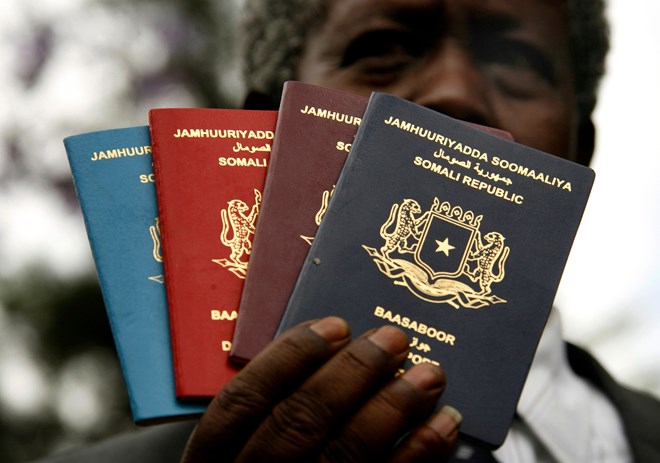Somalia’s Immigration and Citizenship Agency (ICA) has officially launched an international tender to produce a new third generation electronic passport.
Marking a significant milestone in the country’s journey toward modernizing its national identification systems and strengthening global travel security compliance.
What is the Third Generation Electronic Passport Made from?
The new Somali e-passport will be made from durable polycarbonate material and will include advanced biometric and anti-forgery technologies in line with the latest International Civil Aviation Organization (ICAO) standards.
The initiative is part of Somalia’s broader efforts to enhance border security, improve service delivery, and increase international confidence in its official travel documents.
Modernizing Somalia’s Identity and Travel Systems
In a statement released on Saturday, the ICA described the project as “a major milestone in modernizing Somalia’s immigration and citizenship services.”
Officials emphasized that the introduction of the third generation electronic passport is a strategic step toward digital transformation and secure mobility for Somali citizens worldwide.
Somali E-passport New System
The new system will be implemented under a Public-Private Partnership (PPP) model.
This move aims to ensure transparency, efficiency, and sustainability.
According to the agency, the PPP approach will allow the government to collaborate with global technology providers to deliver a secure and high-quality passport production system that meets international best practices.
Transparent and Competitive Tender Process
The ICA confirmed that the international tender will be conducted in accordance with Somalia’s Public Procurement Act, ensuring fairness, competition, and accountability in selecting the company responsible for production.
“The process will be carried out transparently and in accordance with national procurement laws,” the agency stated.
Why is Transparency Critical in This Process?
“All stages of the evaluation will remain open to public oversight to guarantee fairness and integrity throughout the selection process.”
Officials noted that transparency in this process is critical to maintaining public trust and attracting reputable international partners capable of delivering advanced technological solutions for Somalia’s evolving security needs.
Enhanced Security, Durability, and Global Recognition
The third generation electronic passport is expected to offer greater durability, data protection, and anti-counterfeiting features, aligning with global efforts to curb identity theft and document fraud.
ICA officials stated that the new passport will “elevate the reputation and credibility of Somali citizens globally,” helping travelers enjoy smoother entry into international destinations.
By integrating biometric features such as facial recognition, fingerprint data, and secure chips, the passport will not only improve border efficiency but also play a key role in Somalia’s digital identity framework, supporting e-governance and online verification systems.

Public Consultations and National Identity Representation
To ensure inclusivity and national representation, the ICA announced plans to hold public consultations involving Somali citizens, government institutions, civil society organizations, and other key stakeholders.
These consultations aim to ensure that the new passport reflects Somalia’s national identity, dignity, and aspirations.
“The Immigration and Citizenship Agency will engage the Somali public to ensure the new passport reflects the dignity, reputation, and needs of our citizens,” officials said.
This participatory approach underscores the government’s commitment to transparency and citizen engagement in national development projects.
A Step Toward Digital Governance
The last significant upgrade to Somalia’s passport system was in 2013, when the country introduced its first electronic passport.
The upcoming third generation version represents a leap forward, designed to meet emerging global travel and cybersecurity requirements.
Officials view the project as a cornerstone of Somalia’s digital governance strategy, which seeks to modernize public services, strengthen data security, and align the nation with international digital standards.
Conclusion
The new Somali e-passport is expected to streamline administrative processes, enhance border management, and improve Somalia’s standing in global mobility indexes.
As the tender process unfolds, Somalia’s leadership emphasizes that modernization of identification and travel systems is not just a technical upgrade.
It is a statement of national progress, sovereignty, and global reintegration.
Source: Hiiran Online








